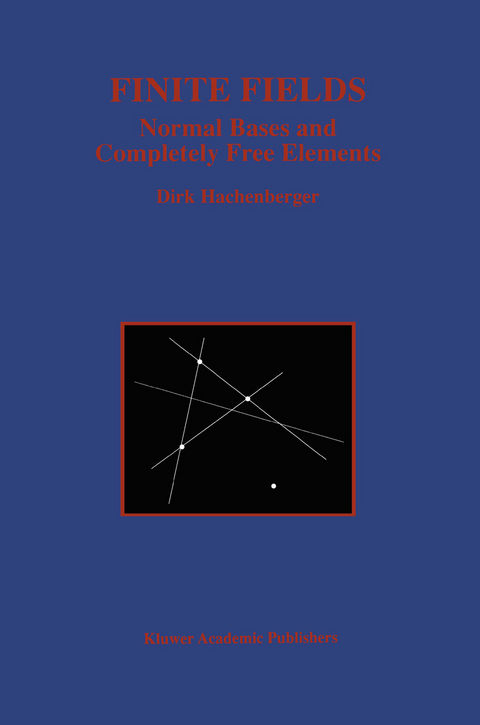
Finite Fields
Springer-Verlag New York Inc.
978-1-4613-7877-8 (ISBN)
I. Introduction and Outline.- 1. The Normal Basis Theorem.- 2. A Strengthening of the Normal Basis Theorem.- 3. Preliminaries on Finite Fields.- 4. A Reduction Theorem.- 5. Particular Extensions of Prime Power Degree.- 6. An Outline.- II. Module Structures in Finite Fields.- 7. On Modules over Principal Ideal Domains.- 8. Cyclic Galois Extensions.- 9. Algorithms for Determining Free Elements.- 10. Cyclotomic Polynomials.- III. Simultaneous Module Structures.- 11. Subgroups Respecting Various Module Structures.- 12. Decompositions Respecting Various Module Structures.- 13. Extensions of Prime Power Degree (1).- IV. The Existence of Completely Free Elements.- 14. The Two-Field-Problem.- 15. Admissability.- 16. Extendability.- 17. Extensions of Prime Power Degree (2).- V. A Decomposition Theory.- 18. Suitable Polynomials.- 19. Decompositions of Completely Free Elements.- 20. Regular Extensions.- 21. Enumeration.- VI. Explicit Constructions.- 22. Strongly Regular Extensions.- 23. Exceptional Cases.- 24. Constructions in Regular Extensions.- 25. Product Constructions.- 26. Iterative Constructions.- 27. Polynomial Constructions.- References.- List of Symbols.
| Erscheint lt. Verlag | 8.10.2012 |
|---|---|
| Reihe/Serie | The Springer International Series in Engineering and Computer Science ; 390 |
| Zusatzinfo | XII, 171 p. |
| Verlagsort | New York, NY |
| Sprache | englisch |
| Maße | 155 x 235 mm |
| Themenwelt | Mathematik / Informatik ► Informatik ► Theorie / Studium |
| Mathematik / Informatik ► Mathematik ► Allgemeines / Lexika | |
| Mathematik / Informatik ► Mathematik ► Algebra | |
| Mathematik / Informatik ► Mathematik ► Angewandte Mathematik | |
| Mathematik / Informatik ► Mathematik ► Logik / Mengenlehre | |
| Technik ► Elektrotechnik / Energietechnik | |
| ISBN-10 | 1-4613-7877-X / 146137877X |
| ISBN-13 | 978-1-4613-7877-8 / 9781461378778 |
| Zustand | Neuware |
| Haben Sie eine Frage zum Produkt? |
aus dem Bereich


